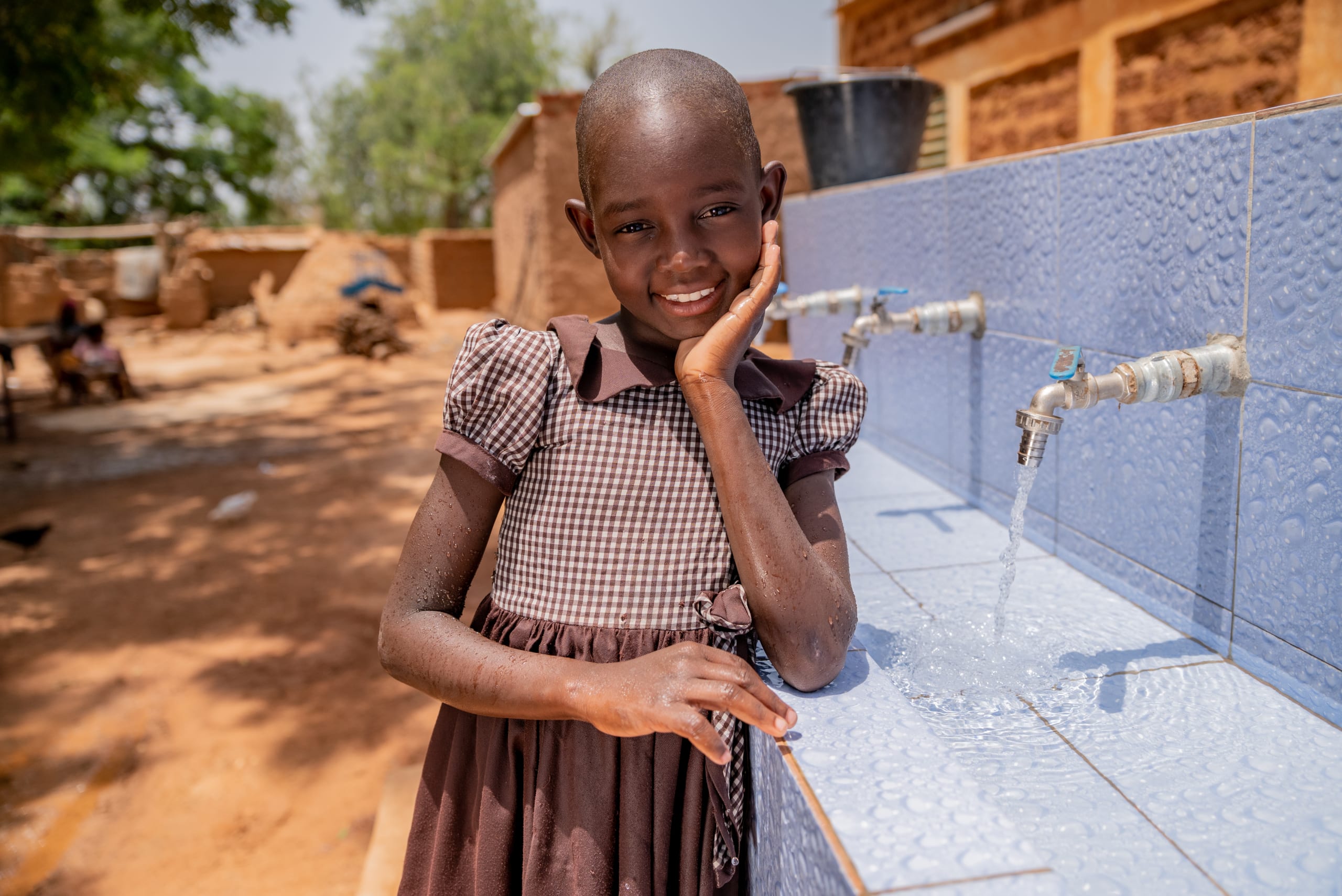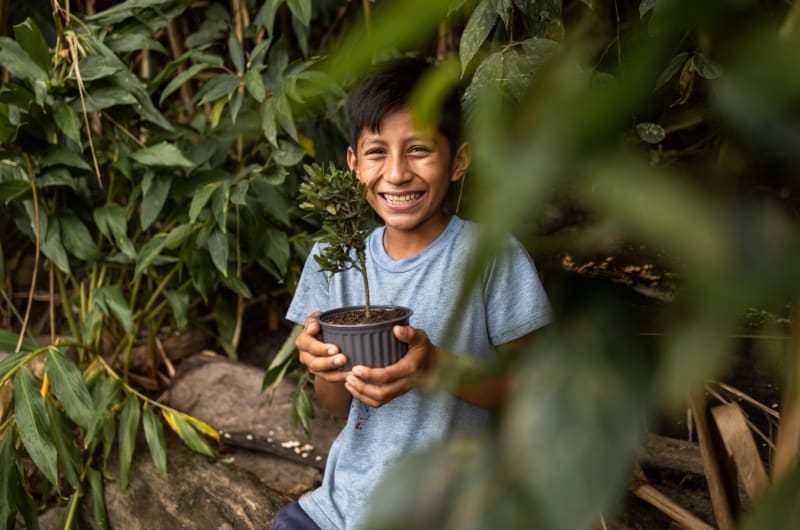Meet Egodine. This eight-year-old girl lives in a small community in northwestern Burkina Faso, where the sky is expansive, the dirt is deep red dust and the horizon is punctuated by vegetation that can weather the dry seasons.
Egodine loves where she lives—it’s her home. But her small community does not have a clean water source, which has burdened adults and children alike.
Egodine lives with her aunt Nina and together, they shoulder buckets of water from a nearby well or the river when it rains. The weight of the water was more than just the buckets they carry. It is the time consumed to fetch and purify the water, the health risks it presented and even the social toll, with Egodine being teased for not having the resources to buy clean water.
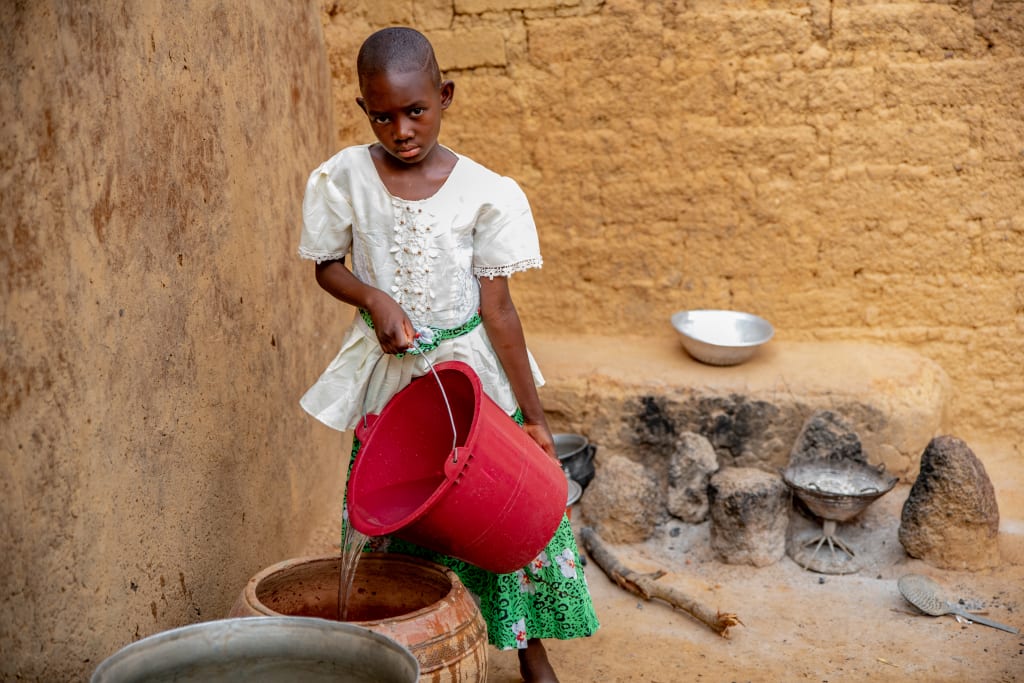
Egodine pours water into storage containers.
It seemed like nothing would ever change. Egodine and the other children in her community would live their lives under the weight of unsafe water and bear the consequences like the buckets they hauled on their shoulders.
But… Compassion can change things.
Egodine attends the Compassion centre at her local church. This church is located in the community, but more than that, it is for the community. They saw the toll the lack of access to safe water had on their community and began to explore how to address it so that children and families no longer had to rely on unsafe water to live.
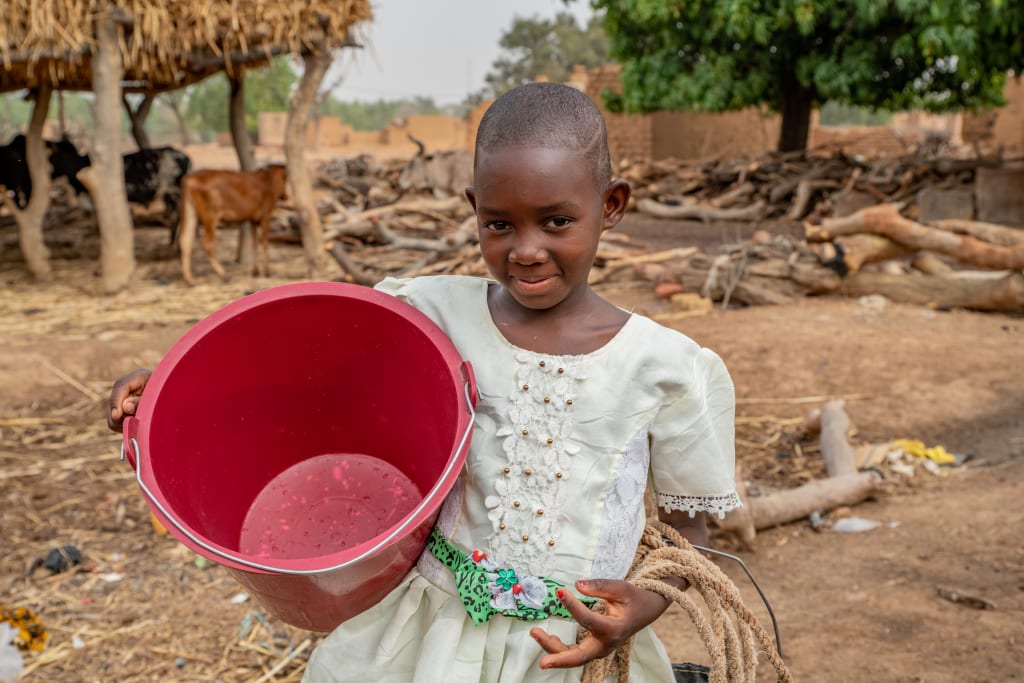
The Compassion centre determined that a borehole was the best way to create change. Soon, Egodine’s community received the news that there would soon be clean drinking water, handwashing facilities and water taps provided at the church.
In her own words, Egodine is excited to share with you what it was like to see this life-changing resource come to her community:
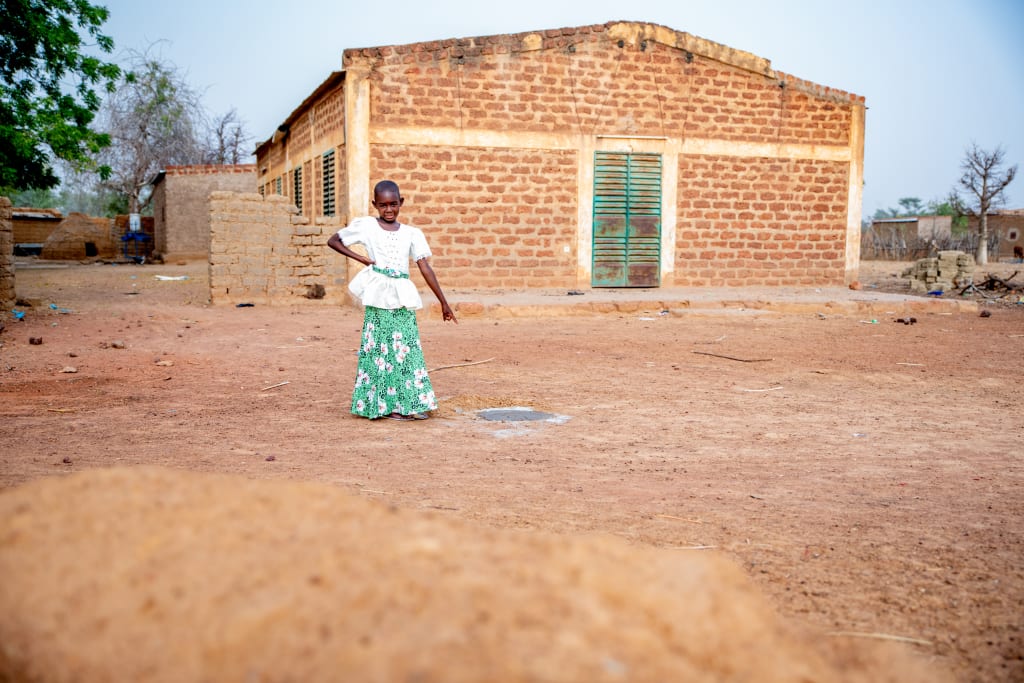
Egodine points at the location where the borehole will be drilled.
The day of the announcement
One day at the centre, I heard a special announcement from Ezeckiel, the centre director, that would change my life. He told us that the centre was going to receive a new borehole. We didn’t know what a borehole was, so my friends and I raised our hands to ask questions. Ezeckiel explained that it was a way of drawing clean water from underground. We all thought this was amazing! He told us that it would give us clean water and would come with beautiful handwashing facilities.
We didn’t know what it would look like, but my friends and I all clapped and danced!
I was so excited that there would be clean water at the centre, not far from my home. I learned that a borehole is bigger than a house, and it stores clean water that people can fetch easily.
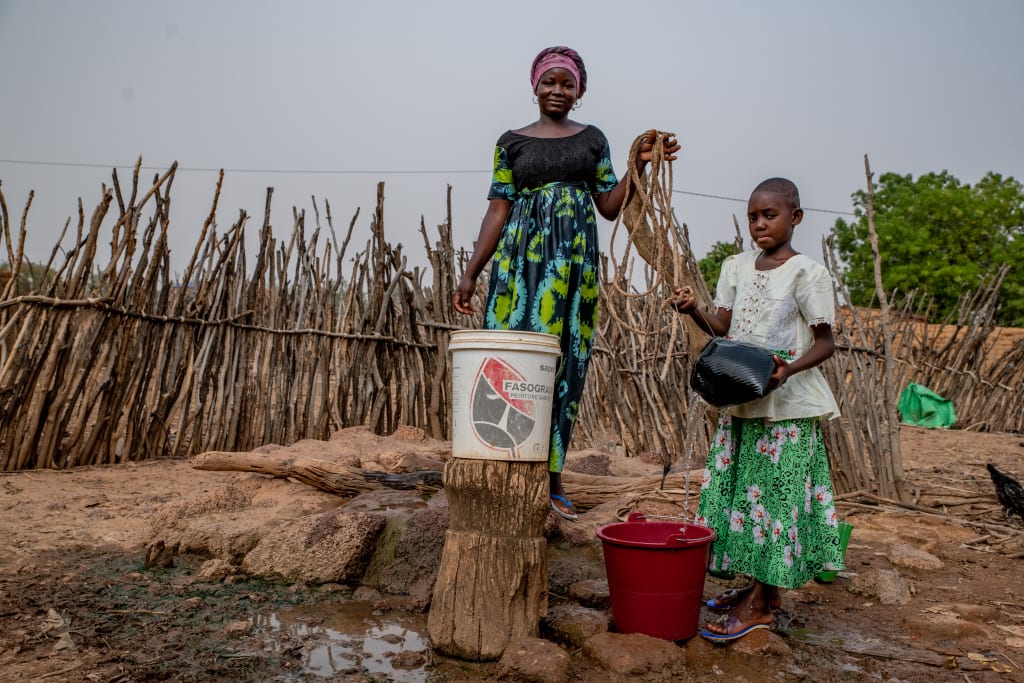
Egodine stands with her aunt Nina with the buckets they use to haul water.
My aunt Nina and I used to fetch water from a well and the river when it rained, but it was not clean. My village needs a borehole because it is difficult to get clean water. Those who have money can buy clean water in town to drink because they don’t want to drink dirty water from open wells. But we had no choice.
One day, I heard my friends saying that the water from our old well was not sweet, and I was ashamed.
But getting a new borehole means my aunt will fetch water easily at the centre, and I can also drink clean water and wash my hands there. Hurray!
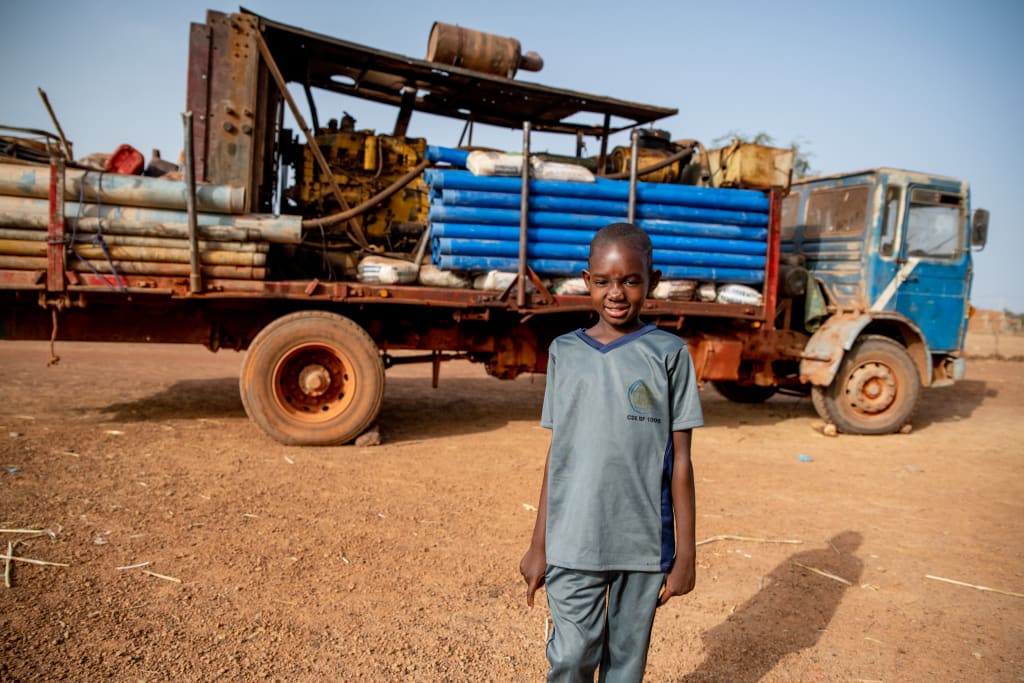
Egodine stands in front of the truck that brought all of the supplies to install the borehole.
Day 1: The construction begins
On a Friday evening, I heard a loud noise of big trucks heading to the Compassion centre.
I ran to the centre with my friends Jacqueline, Georgette and Osias to watch them. The strangers came from the capital city and looked tired and dirty because they had spent three days travelling. Ezeckiel said that they were from the drilling company. They needed to rest at night and start the drilling early on Saturday. I was excited because Saturday was a Compassion day, so I could watch their work while I was there. I felt so curious!
There was a piece of brick marking where they would dig the borehole and the trucks were parked near this water point at the back of the church building. I didn’t know how long their work would take but I couldn’t wait to watch them. Children, adults and the tutors at the centre were all happy to see the trucks and the long blue pipes they carried.
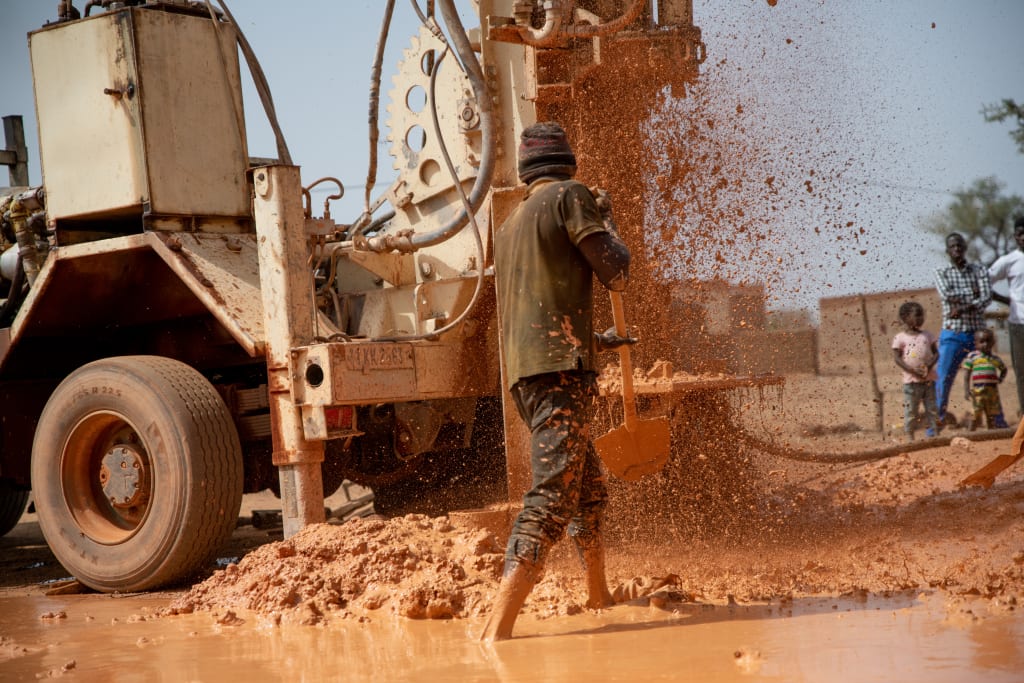
The construction team begins drilling the borehole.
Day 2: The drilling begins!
Many people stopped by the centre on the morning of the drilling day to watch. Massive clouds of smoke were in the air as the trucks dug into the ground. The drilling was difficult, and the workers were soon covered with red dust and mud.
The more they dug, the more the earth became wet. We were all eager to see water appear from underground, just like Ezeckiel said it would. But around noon, the team had a break. The tutors struggled to keep us away from the drilling place—we were all excited to see! It looked like a market day because many villagers came to the centre to watch the drilling. People were very excited about the construction process and what it would mean for us.
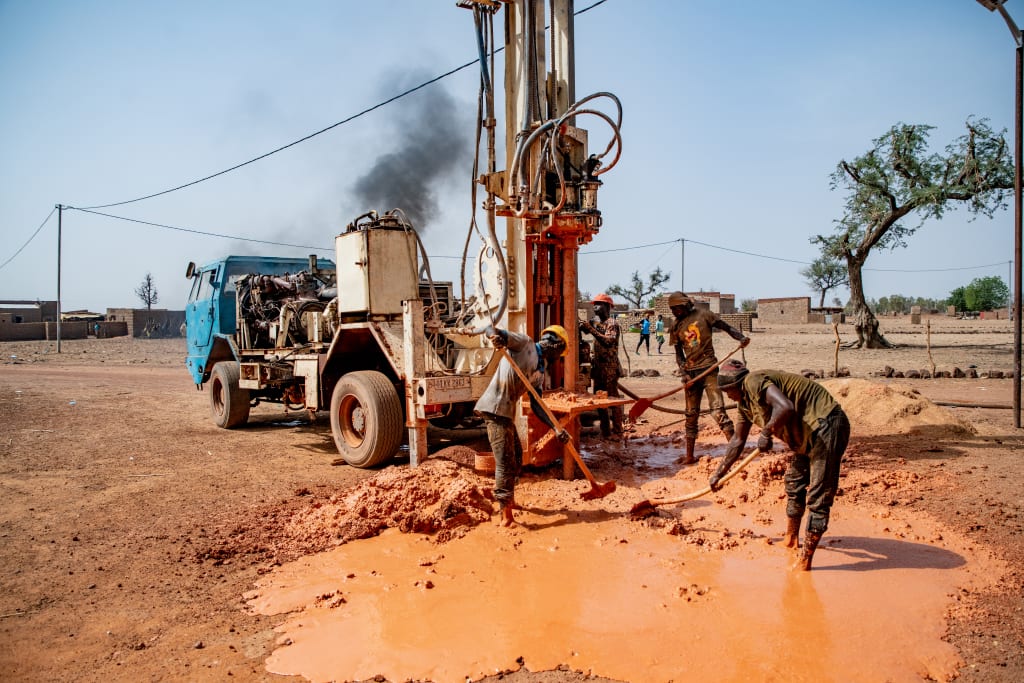
Water begins to appear as the team drills into the earth.
After we had lunch at the centre and activities were over, we didn’t want to go back home. I stayed with my friends and many other children stayed longer than usual, too. The mud was running under the main gate of the centre. Finally, the mud became water and was beginning to get cleaner as they dug.
I clapped and shouted with joy. My friend Georgette was next to me, and we cheered for the drilling team! Later, my aunt Nina came to take me home and I told her all about it. I was amazed to watch the drilling of a borehole for the first time, and I had learned so much!
Day 21: The day we got water for the first time
Several weeks after the drilling, another team came to install the water tank and taps. I woke up in the morning and hurried to get ready and eat some breakfast so I could put on my shoes. I was determined to be there early.
It was a Compassion day, and I met up with my friend Georgette on the way to the Compassion centre. We talked about what it would look like to have all the taps and faucets at the Compassion centre and imagined what the water would taste like. We were very happy that the long wait for clean water was now over.
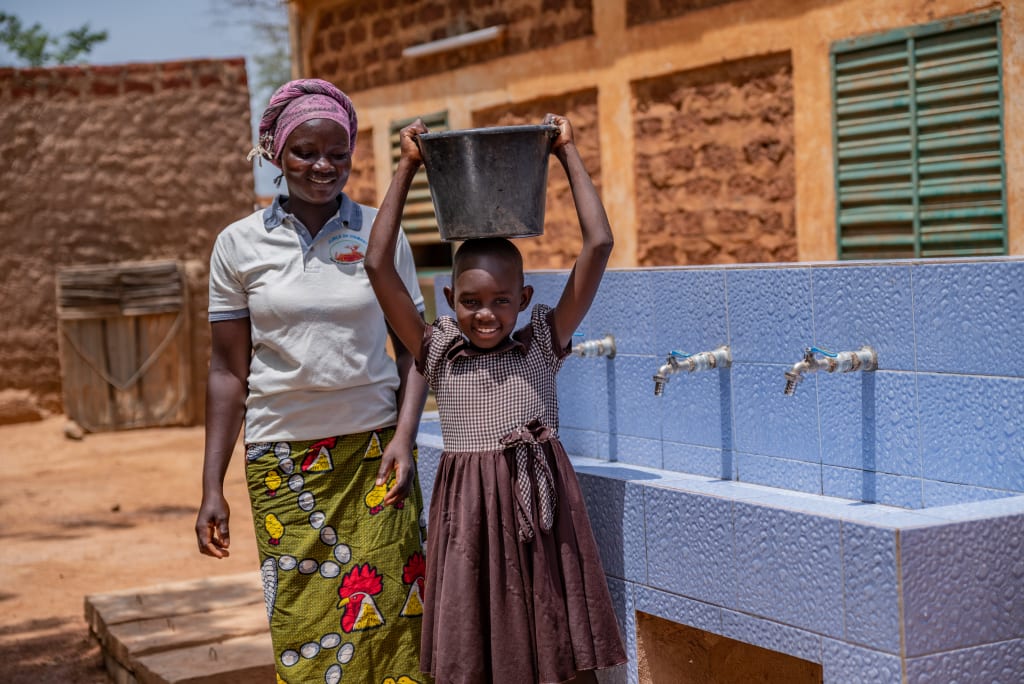
Egodine stands with her aunt Rosine next to the new handwashing facilities.
When we arrived, some children were playing near the church building and the cooks were busy in the kitchen. The tutors welcomed us into the classrooms for prayer time. From the window, I saw a woman filling a bucket from a water tap and I was amazed. The cooks usually fetch water from the old well by the church a day before all the children come.
Our centre director Ezeckiel then showed us how to use the water taps to get clean water. He said that there is a place for handwashing as well and that we will be using all the facilities from now on. Filling a bucket at the water tap was way easier than at the old well!
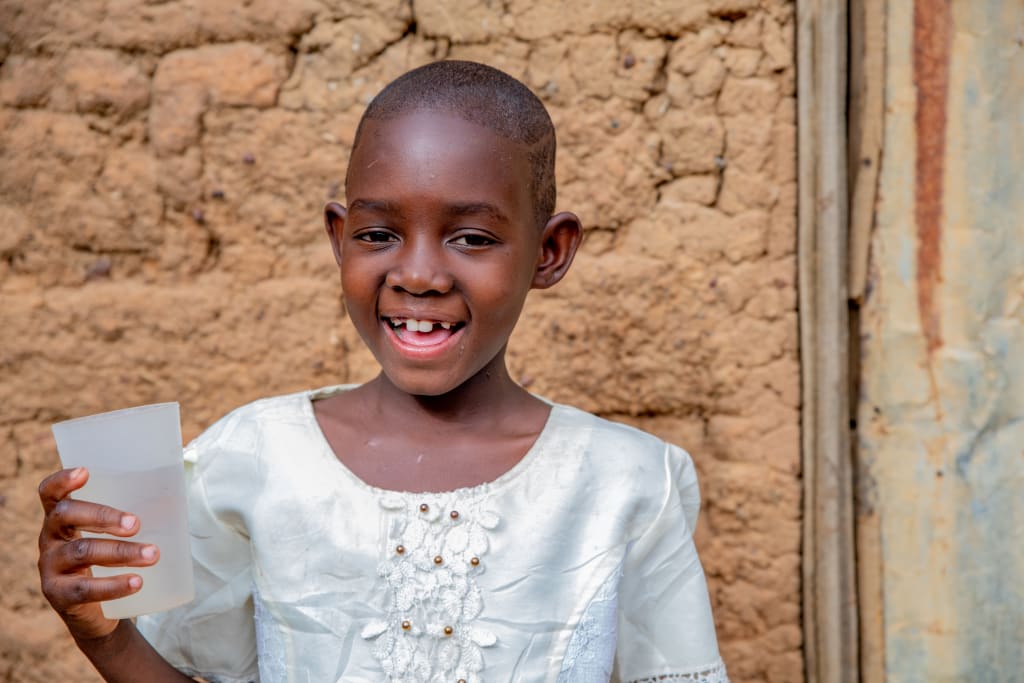
When I drank the water for the first time, it was light, fresh and tasteless. I giggled with Georgette as we sipped on the clean water.
I thanked God for the new borehole and thought, “We are now like people in town!” Everyone is happy that the Compassion centre gives us clean water like in the big cities.
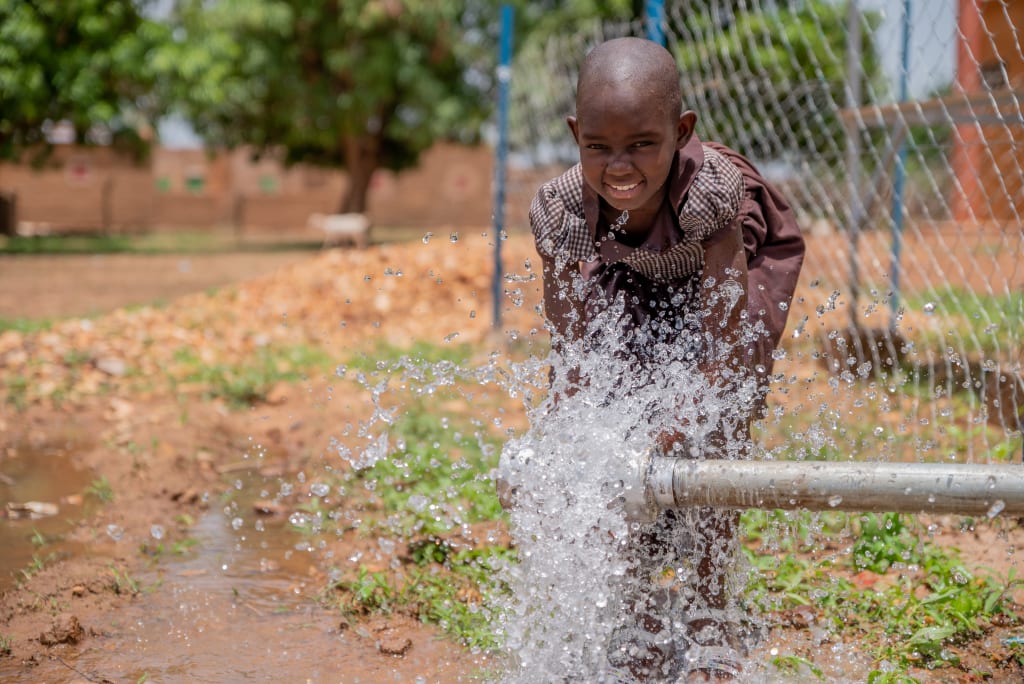
Day 25: The day we celebrated!
Our church planned a day to celebrate, and we could hardly wait! The church leaders and our parents met around the borehole to give thanks. Our pastor prayed for the borehole and prayed a special blessing for the donors who gave it to us. The tutors showed people how to use and care for the water taps.
There are so many taps! We have two taps by the roadside where people in the neighbourhood can get water. And there are eight in the church yard where children like me can wash their hands and drink water during our days at the Compassion centre. There is even a tap in the kitchen for the cook.
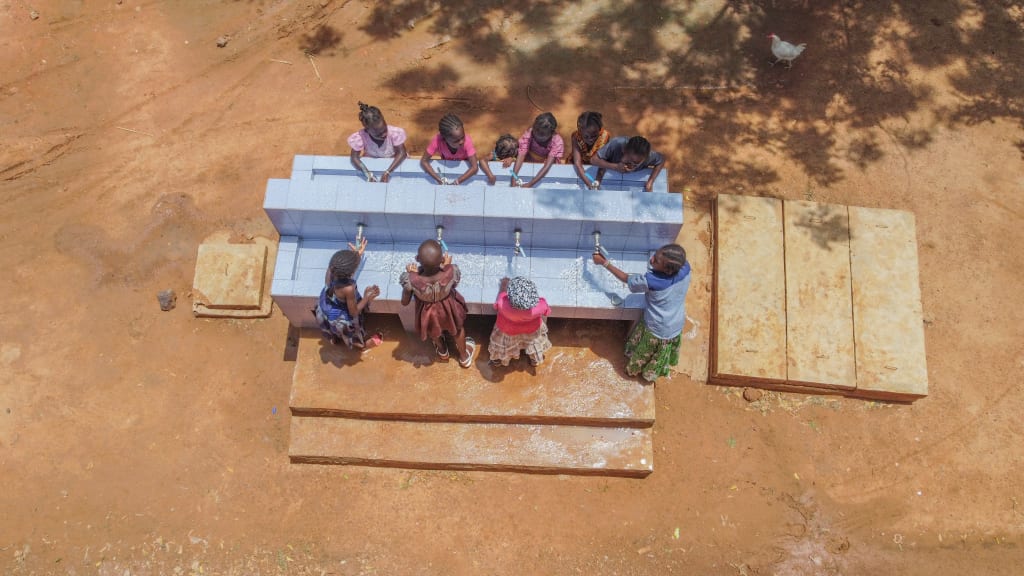
Egodine and her friends wash their hands at the new handwashing facility.
Thanks to the borehole, fetching water became easier and our hands are cleaner. Everyone is happy!
The centre is blessed to have a borehole. Ezeckiel said that we will even start gardening next to the water tank.
The village chief planted a special tree to celebrate and dedicate the borehole, and I am happy to be one of the children allowed to water it. A committee was appointed to follow up the use of the borehole to ensure everyone cares for it and keeps it clean and working correctly.
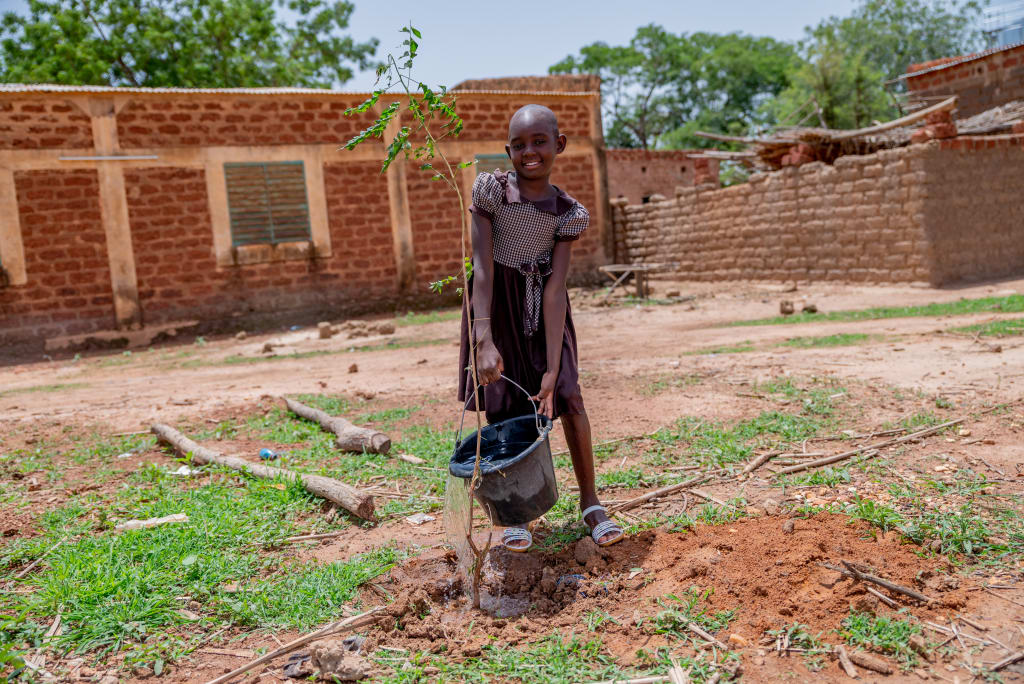
Egodine waters the tree that was planted by the village chief in celebration of the new borehole.
People no longer need to buy drinking water in town. I’m happy to carry my small can of clean water home, walking with my aunt Nina.
To all of the donors who helped us—may God bless you for giving us a new borehole and clean water!
Clean water can make all the difference for kids. It can transform a community. It can communicate the love of Jesus.
Water is compassion in action.
Field reporting and photos by Jehojakim Sangare.

